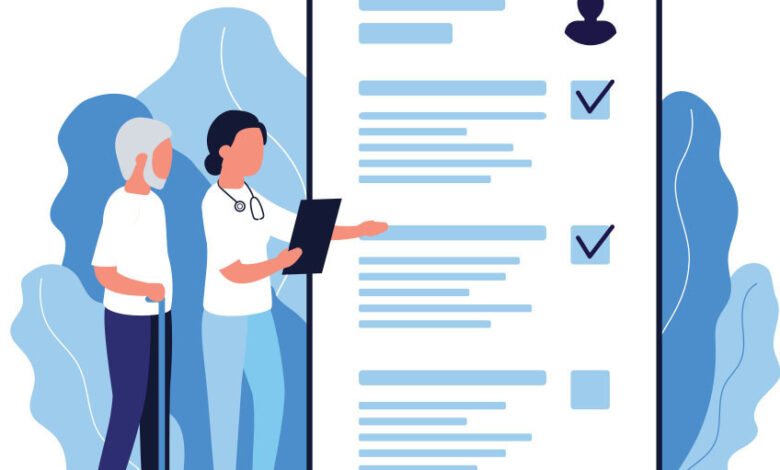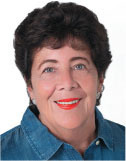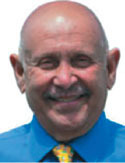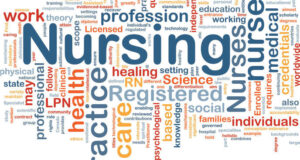
We All Seek Good Outcomes. What’s a Good Outcome for the Patient?
I asked Dennis Robbins, a longtime friend and trusted advisor, to talk to me about outcomes and what they really mean in today’s value-based care models. In this article we ask you to look at outcomes with a new lens – the lens of a person. Understanding this will help case managers, regardless of the setting, look at the work they do and the outcomes they produce in a new light.
Anne Llewellyn: What should case managers be looking at in terms of outcomes?
Dennis Robbins: So much of the time when we talk about outcomes, we think of clinical outcomes. We think of a better result, decreasing morbidity, differences in mortality and, in respect to the person receiving care, being satisfied with the result. As people working in the healthcare space, we often feel that better health and reducing the negative sequalae of sickness is the primary goal.
However, for the person who is sick or recovering from surgery, injury, illness or accident, the goal is often different. People want to get back to where they were. They want to get their lives back physically and emotionally. People can make a difference way beyond any model of the subservient, wounded, vulnerable, passive patient. People get better, not patients!
Case managers who focus on what a person wants and needs and what is important to them by understanding their goals and helping them work toward reaching those goals, are the ones who will be able to optimize positive outcomes.
AL: What are we looking at when it comes to outcomes?
DR: We are not usually equipped or trained to help people get their lives back. We are trained to deal with acute exacerbations of illness and disease that fall outside of a normal bell curve and then do what we must do to be able to push them back into that acceptable curve.
In most cases, we often don’t do the follow up on what the person needs to ensure he or she has the tools or the strategies to get their lives back and improve. We think so much of health and care for those recuperating from a significant illness or extensive surgery where the focus may be very targeted toward getting certain functions, capacities and capabilities back if not to normal then at least back to something that is acceptable to them as a person so they can move and live their lives.
That is the primary outcome they seek. For us, as case managers, it is outcomes with a smaller O; for them, it involves a way bigger and different O. It is about optimizing, maximizing and authenticating our existence and life. It is about life, not illness or disease or loss.
AL: The person is concerned with getting what they need, when they need it, in a manner that is most consistent with their values, preferences, aspirations, expectations and goals.
DR: Another interesting facet of outcomes involves who takes credit for the outcome. As a patient, I can think of a scenario where I worked very hard to find out ways of resolving an issue that I was facing for which I was getting little support and direction. After weeks of trying to figure out and investigating the best thing to do, I came up with a viable alternative solution that made an impact and difference. When I had my next appointment with the case manager and one of the specialty physicians that was involved with my care, they were delighted with the progress I had made, and indicated that I was one of their success stories. The only problem was, neither had anything to do with that success, and in fact, in many ways, it might’ve been despite them rather because of them.
Here is the story. During the heights of COVID, I did a lot of walking… a lot. My usual walking routine consisted of about 20,000 steps a day or more. Where I live, it is very hilly, and one day I took a different route with a lot of uphill on my trek. My tracking watch indicated that I was on the equivalent of 37 flights of stairs. I was tired, I was sore and my leg was aching. Realizing that I overdid it, I tried a few things to deal with the discomfort, including stretching, heat, Epsom salts and analgesic cream, and reducing my walking for a few days. I assumed I may have had an issue with my hip flexor, IT band or hamstring and assumed it would go away with time. Guess what? It didn’t. I assiduously avoided going to healthcare facilities during early COVID and didn’t address this issue medically for over two years, so I waited for quite a while before following up with any member of a medical team. When I did, my primary care doctor made a referral for physical therapy. Physical therapy told me that my condition was both neurological and muscular, and gave me some strategies for reducing the discomfort. None of these worked.
I lost confidence in the physical therapist and thought I might have a hip issue. I thought probably I should get an X-ray, so I wanted to make an appointment with my doctor, and of course everything was backed up so I ended up seeing someone else. The person examined me and found that I had a low pulse in the back of my right knee and my foot. She suggested I do a Doppler study. That sounded like she was looking for zebras when she heard hoofbeats outside the door, and I pretty much was going to ignore getting it done. However, I called a friend of mine who is a surgeon and told him about what I thought was a pretty much excessive, unnecessary and off the charts request. He said it’s not invasive and that I should do it to know what’s going on. So, I did have the test, and I got some pretty bad readings, but she just said I might have some arterial blockage, possible peripheral arterial disease. It didn’t make a lot of sense to me as I walk and exercised a lot and did not smoke, so I have none of the indicators that would normally be there for peripheral arterial disease. After the Doppler, I met with the vascular surgeon, who suggested that I have an arteriogram to find out what was going on. I was fully awake and saw the catheter going every which way, except the way we wanted it to go. Finally, we got into the femoral artery in my thigh, where it showed I had a 7 1/2 inch blockage. It also showed I have really, really strong collaterals because of my walking.
I was fortunate because my vascular surgeon took the time needed to really review my history, EHR and charts. That was something I didn’t expect given all the time constraints of all of us being spread so thin in terms of time and resources to do things in the manner we would really like. She determined that my vascular health was excellent despite the occlusion, which she corroborated from other locations. In fact, she told me that I had a vascular health of 97 or 98%, so if she did perform surgery, she might be able to get me to 99, not to 100. She asked me why my collaterals seemed so strong in the affected leg. I told her that I walk a lot and I swim and I’m very active. I eat healthy and I try to be mindful about how I live my life. She said keep walking! Her medical advice was to keep walking and don’t wear any open-toed shoes. I thought that was a much better recommendation than having to have femoral popliteal bypass with all the associated risks and recovery time. So, I’m still walking. Sometime later I had a follow-up Doppler study, and I’ve shown a dramatic improvement of 30% in terms of my numbers, even though I have this condition.
The bottom line was that because I took care of myself, I was able to avoid surgery. This was a lesson that I hope all reading will take to heart and work to share with those for whom they care.
AL: Do we care for patients or people?
DR: The shift from patient to person is not only a critical starting point but also a critical end point. When something is important or meaningful enough to effect change, that makes a huge difference. Even more so, when the change is consistent with one’s values, aspirations and priorities, the whole picture changes. Rather than being frustrated with what people don’t do, we can focus on what they can and will do with the understating that small changes incrementally make huge differences and dramatically enhanced outcomes that are meaningful to all.





